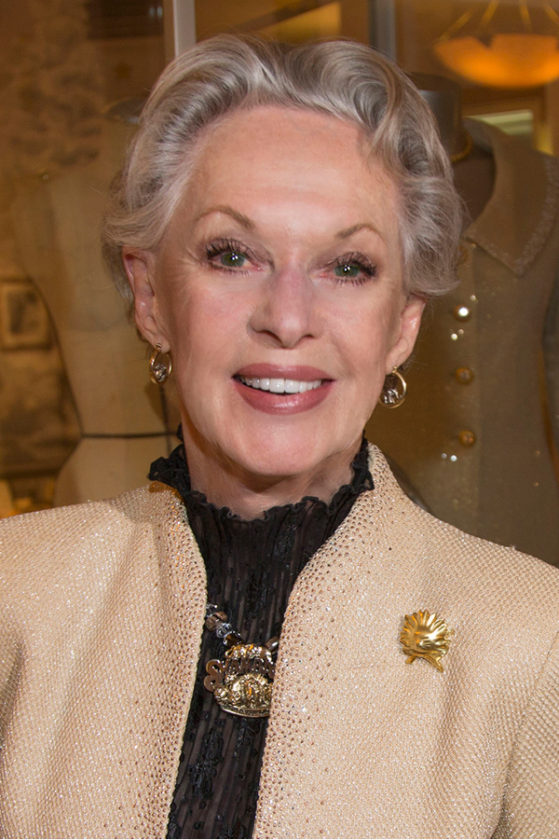The Q Factor
A Lifetime of Leadership and Activism Earns Quincy Jones the Press Club’s Visionary Award
BY TED JOHNSON
The recent documentary “Keep On Keepin’ On” tells the story of ailing 93-year-old jazz great Clark Terry as he mentors a young blind jazz pianist, Justin Kauflin.
Terry’s first student was a then-13-year- old Quincy Jones, who at 81 is also one of the film’s producers. Not only does the project recognize the importance of legacy in the jazz world, it reflects one of Jones’ most famous quotes: “Imagine what a harmonious world it could be if every single person, both young and old, shared a little of what he is good at doing.”
Over the decades Jones has shared a lot of what he is good at doing, from creating hit records to producing “We Are the World,” which raised more than $63 million. He has continued his efforts through his foundation with support for global children’s issues, civil rights, debt relief, malaria eradication and clean water, as well as calling attention to crises in disaster zones such as post-Katrina New Orleans and post-earthquake Haiti.
This unmatched career of philanthropy and activism has earned Jones the Los Angeles Press Club’s Visionary Award, which he will accept tonight at the seventh annual National Arts & Entertainment Journalism Awards.
Jones has worked as a trumpeter, composer, arranger, producer and conductor. Few entertainment figures have had a life as deeply linked to so many other legendary figures in music, politics, the arts and international affairs. He describes the friendships, mentorships and working relationships as a kind of serendipity.
“I’ve worked with the best, and I’ve never tried to chase celebrity,” Jones wrote in Q: The Autobiography of Quincy Jones. “We just happened to stumble into each other.”
Born in Chicago and raised in Seattle, Jones started pursuing music classes in school. He sang in a gospel quartet at age 12 and, when he was 14, met a 16-year-old Ray Charles. Jones continued his studies at the Berklee College of Music in Boston, but dropped out when he got an opportunity to tour with Lionel Hampton’s band as a trumpeter, arranger and sometimes pianist. He developed a particular skill as an arranger in the 1950s when, having moved to New York, he worked for artists including Sarah Vaughan, Ray Charles, Count Basie, Dinah Washington and Duke Ellington.
Another break came in 1957, when he studied with Nadia Boulanger, who also taught Leonard Bernstein and Aaron Copeland. To help make ends meet, Jones took a job with Barclay Disques, the French distributor for Mercury, put- ting him in contact with even more artists, among them Charles Aznavour and Jacques Brel. Around that time, he got a call from Grace Kelly’s office, asking Jones to play an event with Frank Sinatra. It was the start of a 40-year friendship.
“This man was like from another planet,” Jones said at a Canadian music event this year. “I cannot tell you about the experiences we had. It was unbelievable.” The first song he arranged for Sinatra was “Fly Me to the Moon.” It was the Chairman of the Board who gave Jones his nickname, Q.
As Jones’ role in music grew, he became more active on social causes. During this period he got involved in Martin Luther King’s Operation Breadbasket, which worked to improve the economic development of African-American communities. After King’s assassination, Jones joined Rev. Jesse Jackson’s Operation PUSH, and along with other board members founded the Institute for Black American Music.
“I had never been that political before, but following the mule-drawn wagon carrying Dr. King’s casket through the streets of Memphis in a crowd of thousands pushed me right to the edge,” he wrote in his autobiography. He received death threats for his political involvement, even though much of his work was organizing variety shows with performers such as Stevie Wonder and the Supremes.
“Black artists have always been forced to walk the thin line between what is politically acceptable for them to say and what is not,” Jones wrote. “My entire career, indeed my entire life, has been based on trying to break down the walls between people of all colors throughout the world.”
Another way he broke down walls was with “We Are the World.” The song, in many ways an American response to the British “Do They Know It’s Christmas?,” was intended to raise money and call attention to the Ethiopian famine. After Harry Belafonte and Ken Kragen sought a U.S. version, Jones gathered the talent, bringing together just about every major American artist to record the single.
The effort not only raised millions and won Grammys (and produced a memorable music video), but it set a new standard for celebrity involvement in humanitarian efforts.
That standard applied to Jones as well. He has said that “We Are the World” focused him and others on the need for close coordination with non-governmental organizations, particularly in the distribution of funds, as well as in the engagement of world leaders.
That was the case in 1999, when Jones joined Bono and Bob Geldof in a meeting with Pope John Paul II to discuss third world debt relief. With the pope pledging his support, countries including Bolivia, Mozambique and the Ivory Coast saw about $27 billion in debt erased.
Jones continued his efforts with the We Are the Future initiative in 2004, organizing a concert featuring Josh Groban, Carlos Santana, Alicia Keyes and others; the proceeds helped establish child care centers in developing countries. His Project Q, an initiative with the Harvard School of Public Health’s Center for Health Communication, awards the Q Prize to figures who provide resources to young people to achieve their full potential.
One unrealized (as yet) Jones idea is for the White House to establish a cabinet-level Secretary of the Arts, which is what connects so much of Jones’ professional and philanthropic life.
The idea, said Jones, is to elevate the importance of the arts in education, civic life and activism. While it looks like a long shot in the current gridlock of Washington, the key to making it happen may be to heed another piece of Jones’ advice. He relayed it in a recent interview: “You just got to try it.”



